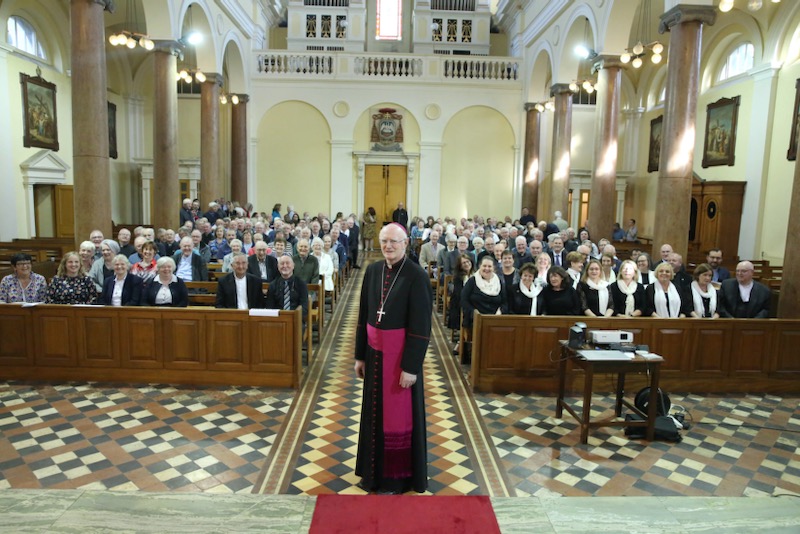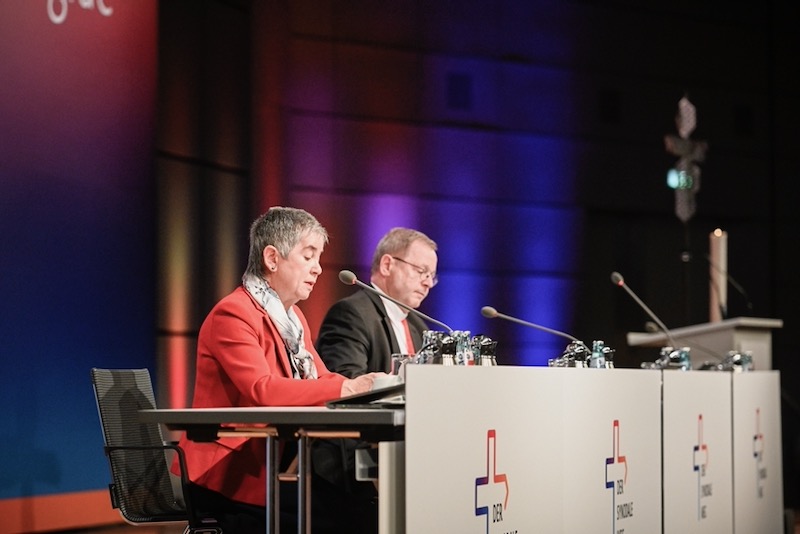The German “Synodal Way” reform procedure has voted in favour of reassessing homosexuality and asked the Pope to reconsider the exclusion of women from priestly ordination. A majority of the bishops declared that they were prepared to give up part of their power: it was decided that a Synodal Commission would be set up which would later become a Synodal Council at which lay Catholics would participate in the decision making on fundamental church questions including financial issues.
But on the very first day of the fourth plenary from 8-10 September at Frankfurt am Main, the entire reform project almost broke down. The basic text calling for reform of the Church’s teaching on sexual morality failed to get the necessary two-thirds majority of the bishops. The text among others things underlines the need not to condemn homosexual acts. “Same-sex sexuality – also expressed in sexual acts – is…not a sin that causes separation from God and is not to be judged as intrinsically bad.”
The delegates were deeply shocked by the setback and the entire reform project was suddenly in danger of foundering altogether. Conference president Bishop Georg Bätzing spoke of a “huge disappointment”. There was no doubt that the vote was valid, he said and added, “This is a critical situation for synodality”.
Many of the delegates were still in shock on the second day and openly warned that if bishops were to reject yet another basic text, for instance the one on women’s ordination which was next on the agenda, the “Synodal Way” process might well not survive.
Bätzing and the president of the Central Committee of German (lay) Catholics, Irme Stetter-Karp, who together head the “Synodal Way” praesidium, pointed out that the reason for the previous day’s crisis was that many of the bishops had not taken part in the hearings and discussions of the “Synodal Way”. She accused these bishops of being “secret blockers”.
Bätzing announced that from then on voting would no longer be anonymous but would take place by a show of hands. Speaking time was lengthened from one minute to two.
Several bishops now openly explained why they had voted for or against the basic text on sexual morality. It became quite clear that the vote was still hanging in balance. Bätzing then called the bishops together for an internal meeting.
That evening the delegates voted in favour of a text calling on the Pope to reassess homosexuality and to change the wording on it in the Catechism. Bätzing also declared that the original text that had been rejected would be handed to the Pope at the German bishops’ ad limina visit in November and brought up at the 2023 Synod of Bishops.
In order for certain texts to pass, the lay delegates had to accept compromises. The text on the participation of the laity in a future synodal council, for instance, states quite clearly that the council would not be able to make binding decisions.
What became quite clear in the course of the four-day plenary was that the German bishops are deeply divided.
In the debates, a minority repeatedly warned against breaking canon law. Some accepted parts of the reform proposals but said they could not accept the texts as a whole. Bätzing himself admitted that “the votes on important theological issues and on further developing church doctrine diverged”. The Bishop of Eichstätt, Gregor Maria Hanke, ctually questioned whether he – with his minority opinion – even still had a place in the “Synodal Way” procedure. But Bätzing concluded that the plenary had reached trend-setting decisions “which will have a signal effect on people who still feel connected with the Church”.



 Loading ...
Loading ...